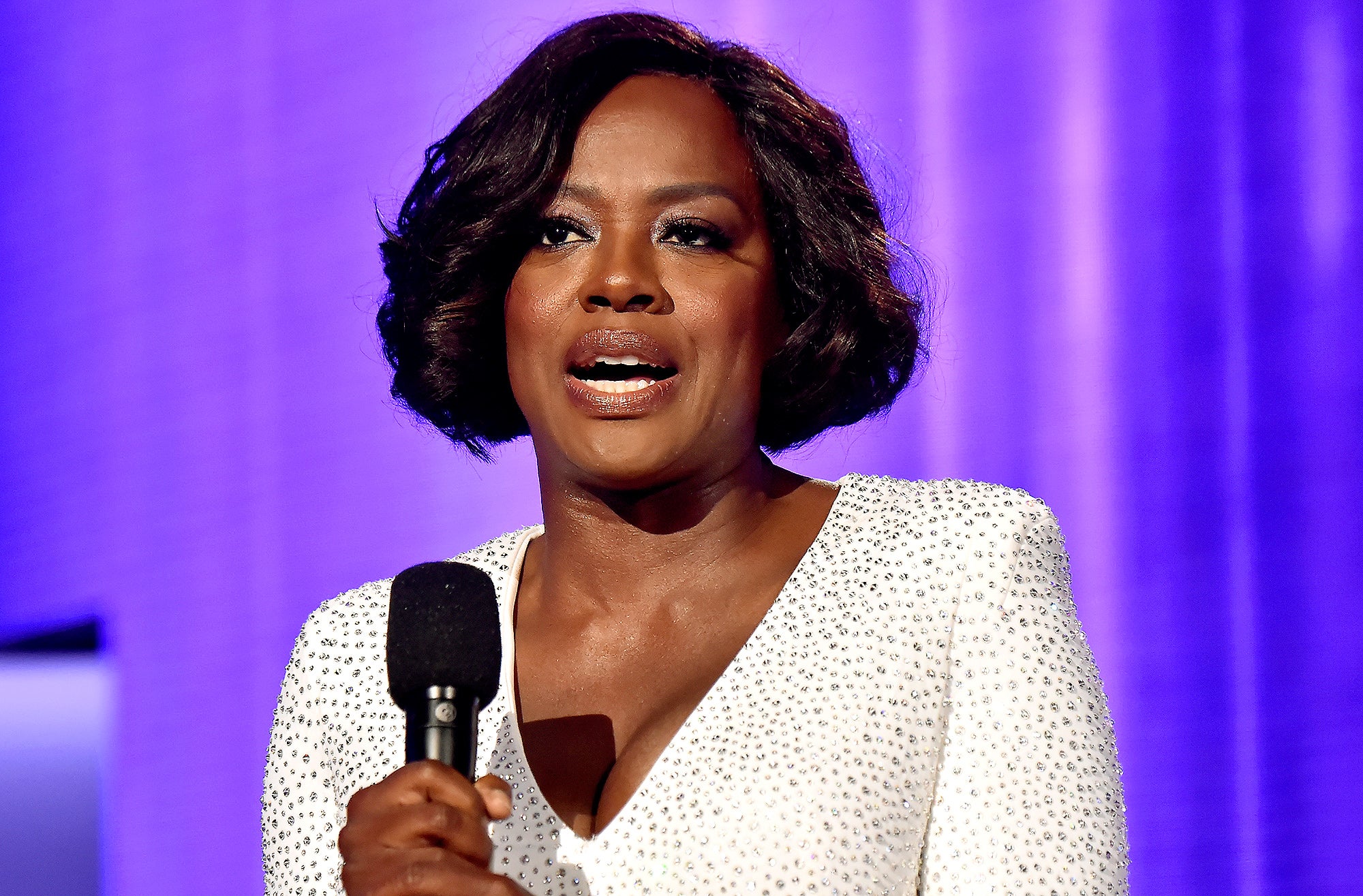
Viola Davis does not mince words when it comes to discussing her difficult childhood — one that was filled with violence and racism so traumatizing, she wet the bed until she was 14.
The Oscar-winning actress took to the stage at the Massachusetts Conference for Women in Boston on Thursday, and told the audience of how she was subjected to violence at school and at home.
Born on a former slave plantation with no toilet or running water, Davis moved to Central Falls, R. I. with her family in 1965 where they were the only black family in town. Living in absolute poverty in an apartment infested with rats, Davis was constantly taunted by her classmates, who would throw sticks and bricks at her.
“The strongest memories I have of school up until 4th grade is constantly being called ‘nigger.’ ‘Black nigger.’ Third grade was just overwhelming,” says Davis. “As soon as the bell would ring, I’d stay in the front of the line so I could start running, because when I looked back I would see eight to nine boys who would pick up anything on the side of the road and yell, ‘you ugly black nigger.’”
Things at home weren’t much better.
“My father was an alcoholic. There was a lot of domestic violence. I was a bedwetter until I was 14, and a lot of times we didn’t have any money for laundry,” said Davis. “There was no money for food, and as soon as the welfare check came the first of the month, after two weeks that food was gone.”
Davis has since found strength and a sense of empowerment from opening up about her early struggles.
“I wanted a life bigger than that. I wanted food in the refrigerator. A call to adventure,” she said. “How do you do it when you live in shame? If I don’t own my story and step inside of it, then I stay outside of it, and always have to hustle for my worthiness. … Everything that was put before me gave me everything that I needed to step into me.”
She had to fight to find her voice in Hollywood also. The star shared that receiving a nomination for an Academy Award was a real turning point for how she felt about her career.
“Until I got the Oscar nomination for The Help and realized I hit the wall, I needed to reconcile the fact that the world out there has done a job on dark-skinned women,” Davis told the crowd. “I no longer wanted to see myself onscreen as someone’s chatty best friend.”
Davis said she hopes that Hollywood will consider telling more diverse stories about more diverse women.
“I see women of color onscreen, and entering the screen five, 10, 15 minutes, an hour into the movie, and I don’t know who they are,” she said. “When I look at the world, I see that a lot of black women are out there suffering from domestic violence and AIDS.”
This article originally appeared on People.